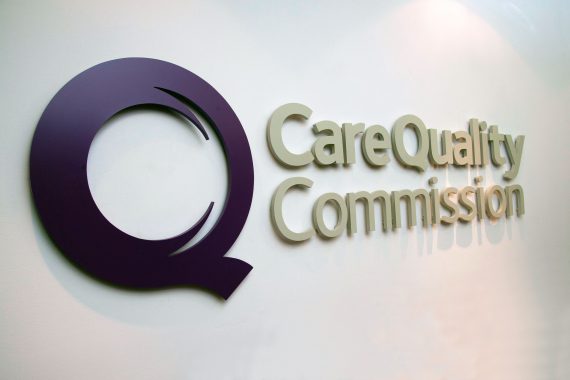The CQC is consulting on plans to phase out on-site GP practice inspections except in cases where it has been alerted to safety risks.
The regulator also plans to change how often practice ratings are updated, with assessments to be prompted by ‘changes in quality’ rather than taking place after a set number of years.
The changes, which were flagged as part of the Government’s review into NHS bureaucracy, build on the CQC’s pilot approach of reducing inspections during the Covid-19 pandemic.
The consultation document said: ‘We want to move away from using comprehensive, on-site inspection as the main way of updating ratings…
‘Instead, we want to use wider sources of evidence, tools, and techniques to assess quality. This includes where we’ve gathered appropriate evidence following focused or targeted inspections, assessments without a site visit, and if we need to take significant enforcement action to protect people.’
However it added that ‘inspection will remain an important part of how we assess quality’.
‘We’ll still carry out an on-site inspection where we have information about significant risks to people’s safety, and to ensure we protect the rights of vulnerable people.’
The proposal means the CQC will ‘make more use of information that we hold to update ratings, and it won’t be necessary to always carry out a site visit if we want to update a rating’, the document added.
It also suggested on-site inspections would come with less bureaucracy.
The document said: ‘If we need to ask health and care providers for information before an inspection, the requests will be targeted and proportionate. We’ll carry on using more targeted inspections to enable us to work in this more focused and proportionate way.’
It added that going forward, the CQC would be ‘moving towards’ updating ratings ‘without visiting the premises.
With regards to changing the frequency of GP practice ratings assessments, the CQC said it wants a ‘less rigid approach that allows us to update ratings more often when we recognise changes in quality and to make our on-site inspections more targeted and flexible’.
‘This will enable us to provide a more up-to-date overview of the quality of care across England. The changes that we want to make mean we won’t return to using the current inspection frequencies that are published on our website and the type of large inspections associated with this approach.
The CQC said it wants to ‘stop describing frequency of assessment in terms of “inspection”, and instead by how often we review quality and update ratings’.
It said this will mean ‘reviewing, confirming and changing ratings in a variety of ways’ which are not just ‘limited to after a physical on-site inspection or a full assessment of quality’.
‘Being able to update ratings without an on-site inspection means we’ll be able to use the expertise and professional judgement of our inspectors in a more flexible way,’ the document said.
The CQC also intends to scrap a current system of assessing practices based on the experience of patient population groups (older people; people with long-term conditions; families; children and young people; working age people; people whose circumstances make them vulnerable; and people experiencing poor mental health).
Instead, practices will only be assessed on the five key questions – is the practice safe, effective, caring, responsive and well-led?
The consultation document said the change was due to ‘little variation’ in ratings across population groups, as well as the desire to simplify the rating system.
On the whole, the CQC said the proposed changes ‘will enable us to deal with ongoing challenges from the pandemic and move us towards our ambition to be a more dynamic, proportionate and flexible regulator’.
The consultation is open until 5pm on Tuesday 23 March.
It comes as the CQC announced plans this week to collect and monitor the ethnicity data of GP providers in a bid to evaluate whether its ratings processes are biased.
Pulse July survey
Take our July 2025 survey to potentially win £1.000 worth of tokens













For once it seems sense prevails
About time too!
Perhaps the clinicians who were working for the CQC could lend a hand in the current crisis?
It’s a consultation not a guaranteed change.
Still time for the plodocracy of the NHS best minds to decide a practice that is not being assessed will be “gaming the system”.
(Just because I’m paranoid doesn’t mean I’m wrong)
Irony the CQC fades out practice visits and the Traditional practice more close and more GPs RELP?too little too late?????
Where’s Professor Field CBE?
A GP who led an intimidating, narrow-minded and soul destroying clan, who closed small and single-handed practices because they had no Legionella testing or latest manual handling training. Looks very stupid of you now. Very “responsive, caring and effective” of you. Perhaps Pulse can trigger an enquiry into institutional racism and correlate the ethnicity of those closed practices and the ethnicity of the inspectors. Just saying. As no one else will.
A good start. Appraisal needs to go next.
They really cannot bring themselves to admit what a miserable expensive failure the CQC project has been, doing absolutely nothing to improve quality and everything to hasten the demise of General Practice. Turns out most GP’s actually do far more than an honest days work and really don’t need some clipboard bearing jobsworth to confirm this.